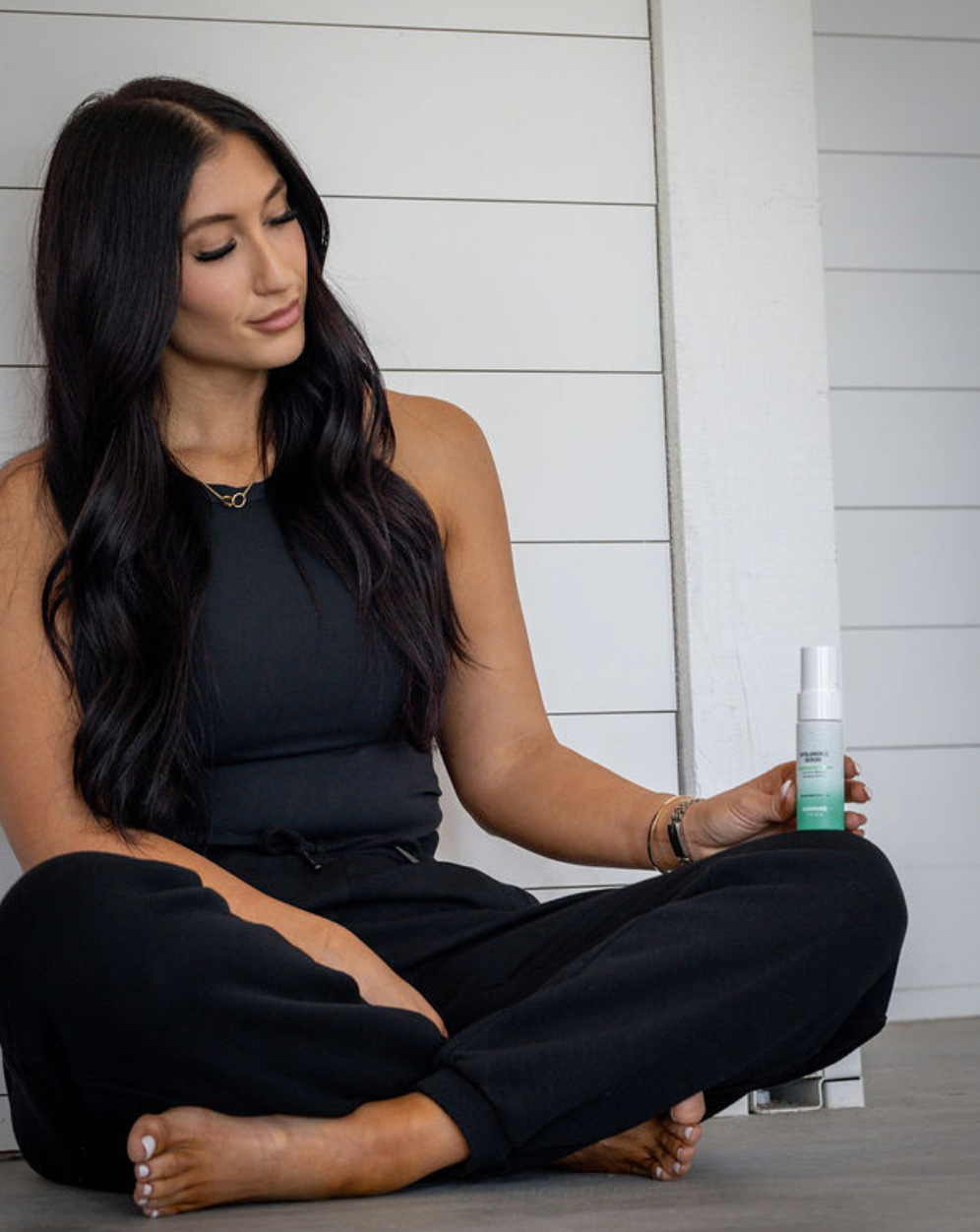As winter approaches, the harsh weather and indoor heating can take a toll on your skin, leaving it dry, itchy, and uncomfortable. The cold air outside and the warm, dry air inside strip moisture from your skin, making it crucial to adjust your skincare routine for the season. Understanding how to keep skin hydrated in winter is essential. Here are nine essential tips to help you maintain soft, hydrated, and healthy skin all winter long.
1. Hydrate from the Inside Out
Hydration starts from within. Drinking enough water is crucial for maintaining healthy skin, especially in winter. While you might not feel as thirsty as you do in the summer, your body still needs adequate hydration. Aim for at least eight glasses of water a day, and consider herbal teas as a warming alternative.
2. Use a Humidifier
Indoor heating systems can sap the moisture from the air, which in turn dries out your skin. Using a humidifier in your home or office adds moisture back into the air, helping to prevent your skin from drying out. Place one in your bedroom to help keep your skin hydrated while you sleep.
3. Switch to Gentle, Fragrance-Free Skincare
Your summer skincare products might not cut it in the colder months. Opt for gentle, fragrance-free cleansers and moisturizers that won’t strip your skin of its natural oils. Harsh soaps and scented products can further irritate and dry out the skin.
4. Moisturize Immediately After Bathing
To lock in moisture, apply a thick moisturizer or oil to your skin immediately after bathing or showering. Pat your skin dry instead of rubbing it, and then apply the moisturizer while your skin is still damp. This helps seal in the moisture and keeps your skin hydrated for longer.
5. Exfoliate Gently
Exfoliating helps to remove dead skin cells, allowing your moisturizer to penetrate more deeply. However, be gentle and avoid over-exfoliating, which can irritate and dry out your skin. Aim to exfoliate once or twice a week. This is another key tip on how to keep your skin hydrated in winter.
6. Choose the Right Moisturizer
Switch to a thicker, oil-based moisturizer during the winter months. Look for ingredients like hyaluronic acid, glycerin, and ceramides, which help to lock in moisture and repair the skin barrier. This is how to keep skin moisturized in winter effectively.
7. Protect Your Skin from Harsh Weather
When venturing outside, protect your skin from the cold and wind. Wear gloves to protect your hands, and apply a protective balm to your lips. If it’s sunny, don’t forget sunscreen — the winter sun can be just as damaging as the summer sun.
8. Pay Attention to Diet and Supplements
Your diet plays a significant role in the health of your skin. Foods high in omega-3 fatty acids, like salmon and walnuts, can help maintain your skin’s lipid barrier, which keeps moisture in. Also, consider supplements like fish oil or flaxseed oil to give your skin an extra hydration boost.
9. Give Extra Care to Problem Areas
Areas like hands, feet, elbows, and knees often need extra attention during the winter. These areas can become extremely dry and cracked. Use heavier creams or balms on these areas, and consider wearing cotton gloves or socks after moisturizing at night to lock in the moisture.
What Causes Dry Winter Skin?
Dry winter skin is a common problem, influenced by a variety of environmental and physiological factors. The primary culprit is the drop in humidity levels that accompanies the cold winter months. Unlike the warm, moist air of summer, winter air is typically dry and cold, which leads to a decrease in the ambient moisture level. This drop in humidity, both outdoors and indoors due to heating systems, means there is less moisture in the air to be absorbed by the skin. Consequently, the skin's surface loses moisture more rapidly, leading to dryness and flakiness. Indoor heating systems, such as furnaces and fireplaces, further exacerbate this issue by raising the indoor temperature while lowering humidity, creating an environment akin to a mild desert where moisture evaporates from the skin quickly and continuously. Additionally, the cold temperatures cause vasoconstriction, a narrowing of the blood vessels, particularly in the peripheral parts of the body like the hands and face. This reduces blood flow to these areas, diminishing the skin’s ability to maintain hydration through natural oils, thereby affecting its barrier function and causing dryness and chapping.
Moreover, the impact of winter on skin health is not just environmental but also behavioral. During winter, people often take hot showers and baths, seeking warmth and comfort. However, the heat from the water can strip the skin of its natural oils, which are crucial for maintaining moisture and protecting the skin from external irritants. This excessive exposure to hot water, combined with the use of harsh soaps and cleansers, which are more likely to be used in greater quantities during winter, further depletes the skin's natural oils. The skin's protective barrier becomes compromised, making it more susceptible to dryness, irritation, and in severe cases, eczema or other skin disorders. Additionally, individuals tend to drink less water in the winter, mistaking the absence of heat for a lack of need for hydration. However, as we mentioned above, internal hydration is equally important for skin health, and the lack of adequate water intake can exacerbate skin dryness. Furthermore, winter clothing, while necessary for warmth, can often irritate the skin. Materials like wool, if worn directly against the skin, can cause irritation and worsen dry skin conditions. All these factors combine to make winter a challenging time for skin health, necessitating extra care and attention to keep the skin hydrated and healthy.

Taking Care of Your Skin in Winter: Beyond Moisturizing
While moisturizing is essential, there are additional steps you can take to keep your skin healthy during winter.
Adjust Your Shower Routine
Long, hot showers might feel great on a cold day, but they can strip your skin of essential oils. Instead, opt for shorter showers with lukewarm water. Also, try using a hydrating shower gel or an oil-based scrub to add an extra layer of moisture.
Consider Professional Treatments
If you’re struggling with particularly dry skin, consider visiting a dermatologist. They can recommend professional treatments or medical-grade products tailored to your skin's needs.
Mind Your Wardrobe Choices
The clothes you wear can also affect your skin’s moisture levels. Avoid harsh fabrics like wool, which can irritate the skin. Instead, opt for soft, breathable materials like cotton.
Regularly Change Your Skincare Routine
As the season progresses and your skin’s needs change, be prepared to adjust your skincare routine accordingly. This might mean switching to an even heavier moisturizer or incorporating a hydrating serum.
Take Care of Your Overall Health
Finally, don’t forget that your overall health impacts your skin. Ensure you’re getting enough sleep, managing stress, and exercising regularly to promote healthy skin from the inside out.
Winter Glow: Sealing Your Skincare Routine
As the snow starts falling, signaling the heart of the winter season, it's more important than ever to be diligent about your skincare. By thoughtfully implementing these nine tips, you're well-equipped to combat the drying effects that come with the chilly, moisture-stripping winter air. Remember, navigating through skincare is a highly personal journey, and the effectiveness of certain routines or products can vary greatly from person to person. It’s essential to stay attuned to how your skin reacts to different skincare strategies and make necessary adjustments. Every flake of snow and drop in temperature is a reminder to nourish and protect your skin. With dedication and a bit of extra care, you have the power to preserve the beauty and hydration of your skin throughout the winter. So as you watch the snowflakes drift down, cocooned in the warmth of your home, feel confident that your skin, too, is wrapped in the protective embrace of your nurturing skincare routine, remaining radiant and supple all season long.









Leave a comment
This site is protected by hCaptcha and the hCaptcha Privacy Policy and Terms of Service apply.